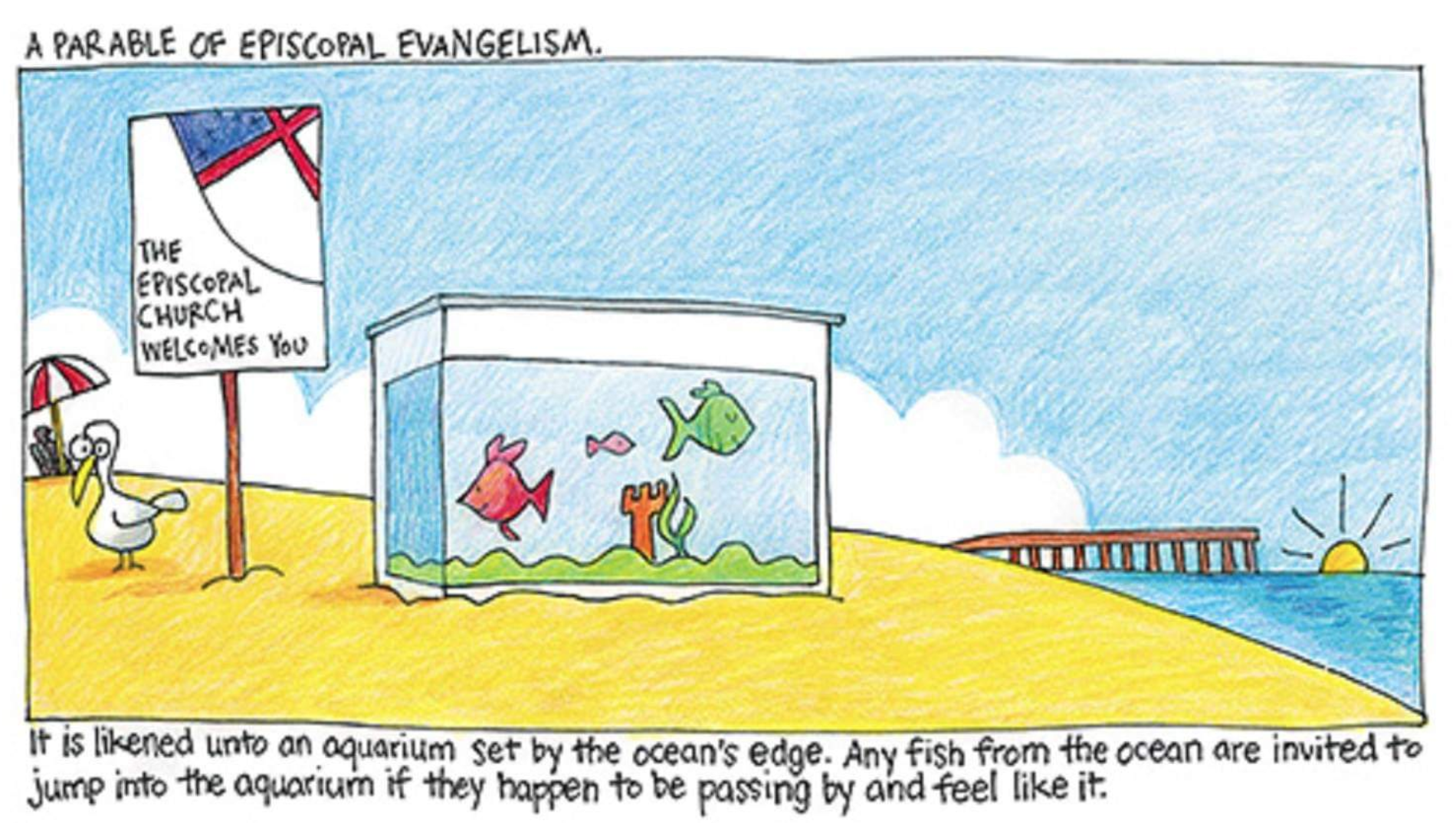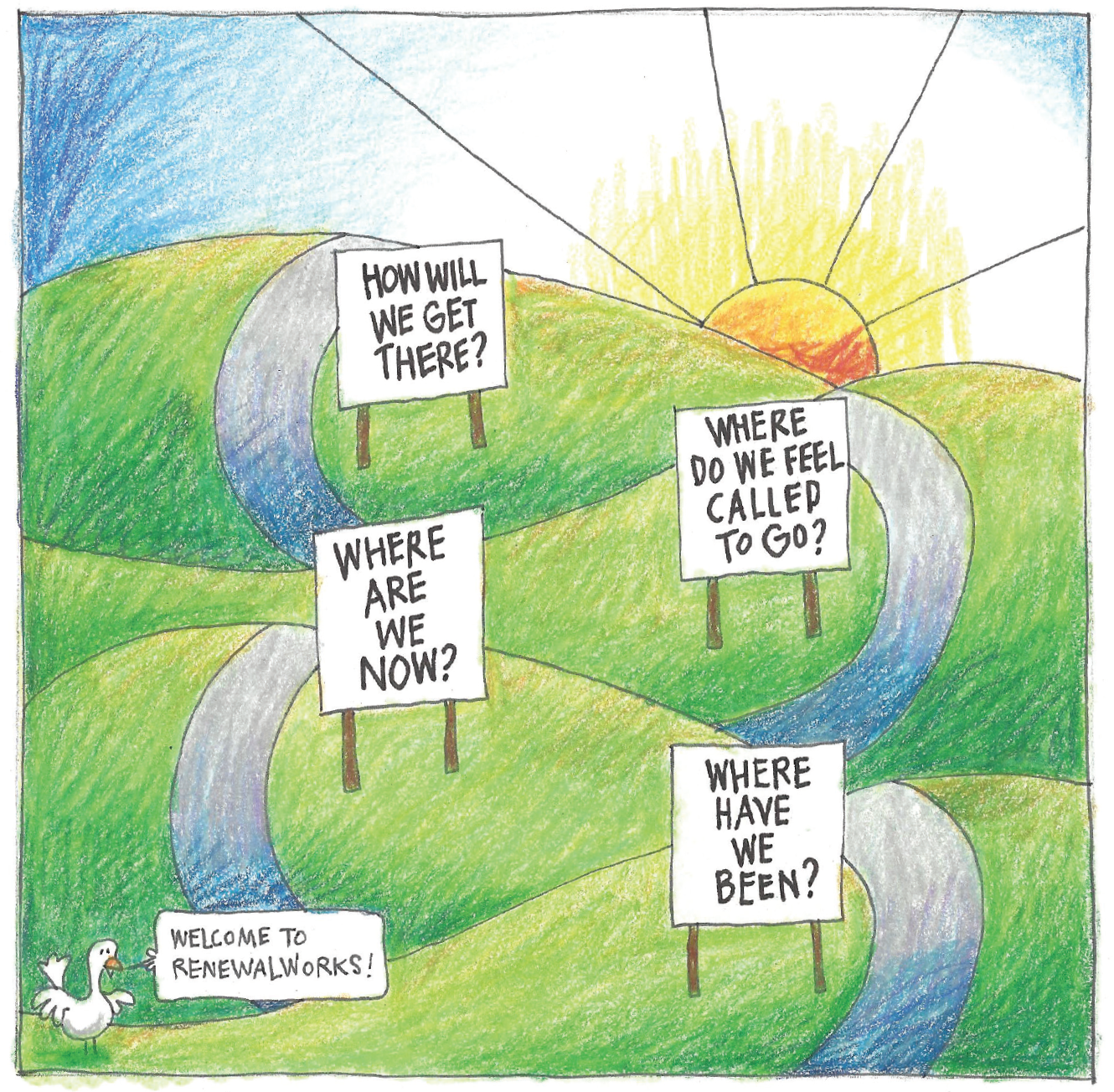
|
You’re welcome
Over the years, I’ve had occasion to read many parish profiles, documents that aim to capture the character of a congregation, shared in the most positive light. I have never, ever read of a church that didn’t describe itself as welcoming. Episcopalians make that boast as a denomination, with ubiquitous road-signs that say “The Episcopal Church welcomes you.”
Yet I’ve heard too many stories of how folks have visited a church and felt invisible, folks bravely going to coffee hour, ending up reading literature about estate planning or feigning interest in a bulletin board of pictures of people they don’t even know because no one would talk with them. I’ve heard church described as family, which has a wonderful element of truth to it, but also can cause people to wonder: What do I have to do to be part of the in-crowd?
I served for a number of years at a church that was experiencing rapid growth. Someone who had been at the church for many years complained to the rector: “Who are all these people? What are you going to do about this? There are so many people I don’t know.” The rector replied, without missing a beat: “Yes, isn’t it wonderful?”
Brian McLaren put the question this way, asking about the character of our churches and denominations: Are we a club for the elite who pretend to have arrived or a school for disciples who are still on the way? It reminds me of the woman who challenged me on why I spoke about church growth or evangelism so much. She said: “I don’t know why you harp on that. Everyone in town who ought to be Episcopalian already is.”
Club or school? Obviously, McLaren aimed for the latter. One of the things I imagine about a school for disciples on the way is that in that movement, there is always a readiness to welcome folks, fellow travelers along the way.

by Jay Sidebotham
And this discussion presents just one aspect of the issue. These verses come after Jesus has told his disciples that they are called to love their enemies, to pray for them. If it’s hard for us simply to welcome people we don’t know to our churches, people who look a little different, how hard will it be to include those who we might consider to be enemies? Those who disagree with us. Those who have harmed us. Those who don’t like us. Maybe hate us. Maybe deep in the secret places of our hearts we hate them.
Jesus knew that the way of the world was to like the people who are like us, to withdraw into our bubbles, to settle into communities of agreement, cultures of affinity. That’s apparently the way the world operates. Even tax collectors and Gentiles know that. But he envisions another way, the way of love.
Where is that a challenge this week for you? Maybe it comes in your church, in your family, in your workplace. Maybe it comes with people who disagree on issues political or social or theological? How can you reach out this week?
And if the challenge feels beyond your capability, make it a focus of your prayer life.
Ready to begin your RenewalWorks journey?

Join the September 2022 cohort of congregations on the journey of discipleship.
A lawyer approached Jesus, putting him to the test with this question: “Which is the greatest commandment?” Jesus’ response was simple, if not easy. He said it was about love of God (with all your heart and soul and mind) and love of neighbor as self.
That singular emphasis on love of God and neighbor provides the foundation for RenewalWorks, a ministry that focuses on spiritual growth by deepening love of God and neighbor in the lives of congregations, in the lives of ministries that animate those congregations, and in the lives of the individuals who bring life to those ministries.
When the details of life press in, parishes, like individuals, can inadvertently move away from this singular, simple focus on discipleship to the more mundane but necessary actions of running a church. RenewalWorks brings the focus back to Jesus’ response to the lawyer.
